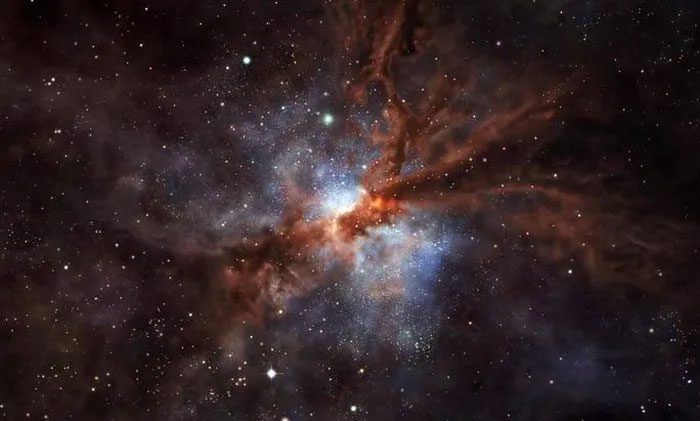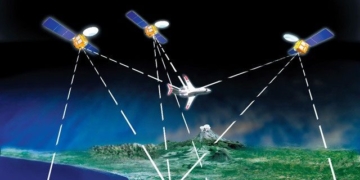Images of an ancient galaxy that has traveled over 12 billion years have appeared before the eyes of Earth, revealing that the elements that make up our bodies were forged from the dawn of the universe.
Using the powerful ALMA telescope located in the Atacama Desert of Chile, a team of scientists from the European Southern Observatory (ESO), the University of Hertfordshire (UK), and another research institute discovered the presence of fluorine—which forms our bones and teeth as fluoride—in an ancient galaxy, as reported by SciTech Daily.

Stunning image of an ancient star-forming galaxy – (Photo: ESO/L. Calçada)
The element fluorine exists in the form of hydrofluoric acid in the NGP–190387 galaxy, a celestial object that existed 12 billion years ago, when our universe was just over 1 billion years old. Due to the distance of 12 billion light-years, the images of this galaxy took that long to “transcend time” to reach Earth and be captured by the observatory.
According to Dr. Maximilien Franco from the University of Hertfordshire, the source of fluorine must be stars, which, upon dying and exploding, release fluorine and many other special elements from their cores. However, since fluorine was discovered in a galaxy that is at most 1.4 billion years old, it must originate from stars with short lifespans, which are born and die quickly.
Therefore, the most likely source is Wolf-Rayet stars, a type of massive star in the universe that only “lives” for a few million years—a tiny fraction compared to the lifespan of the Sun. This galaxy may have once been densely populated with such stars, as the level of fluorine here is equivalent to that found in the Milky Way galaxy, which contains Earth.
The discovery of NGP–190387 marks one of the first findings of fluorine outside our galaxy, indicating that many elements that make up our world—and us—were actually forged from the dawn of the universe, in ancient galaxies that may no longer exist today.
This research was recently published in the scientific journal Nature Astronomy.


















































